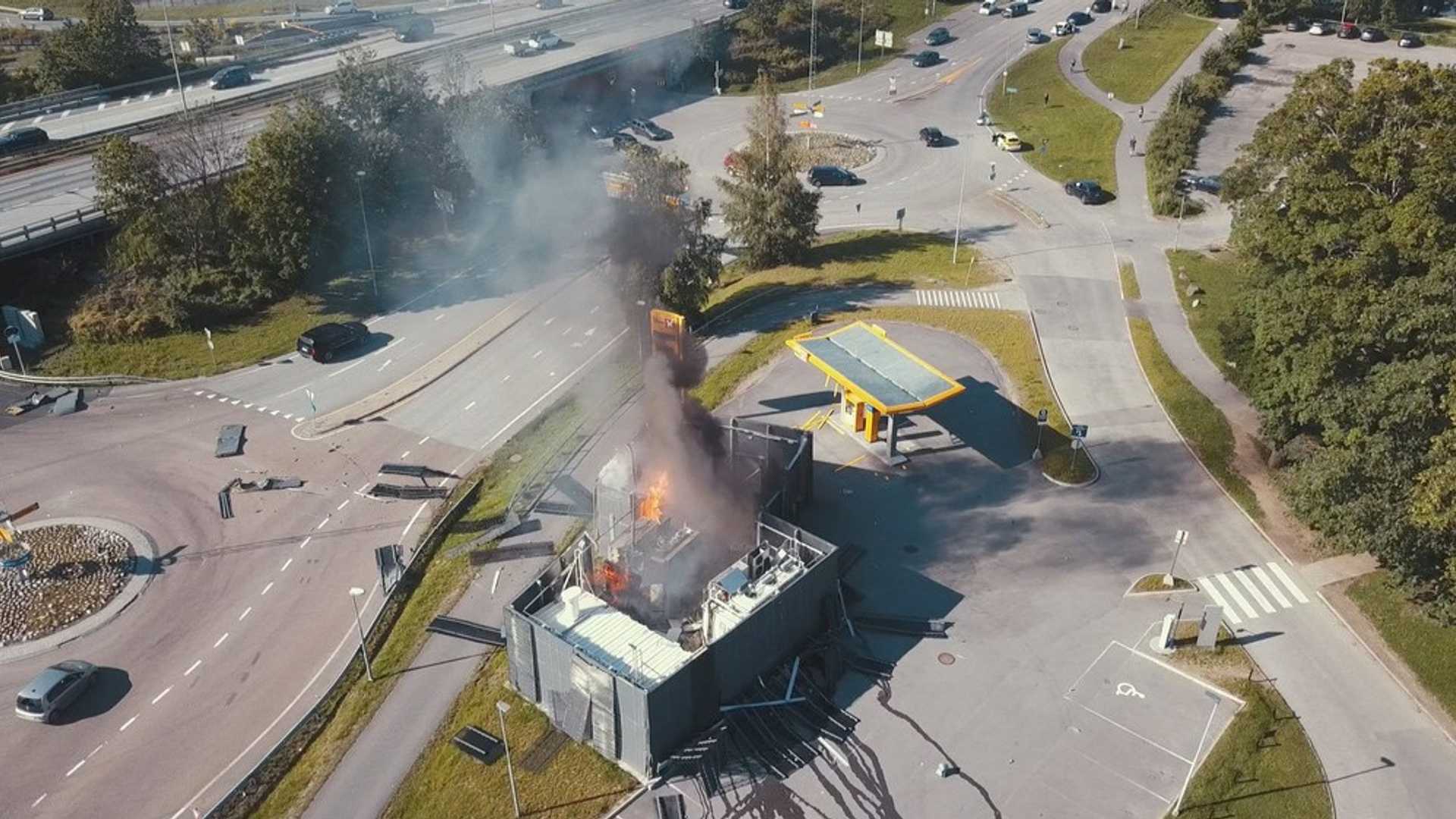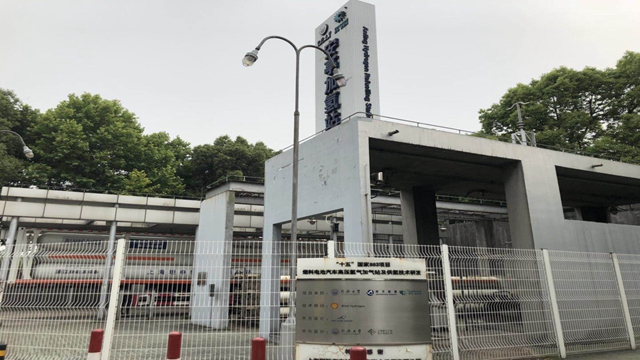In addition to Weibo, there is also WeChat
Please pay attention

WeChat public account
AutoBeta


2024-11-21 Update From: AutoBeta autobeta NAV: AutoBeta > News >
Share
AutoBeta(AutoBeta.net)06/13 Report--
Hydrogen fuel cell is considered to be one of the important technical routes of new energy vehicles in the future, including Toyota, Hyundai and many domestic manufacturers, all accelerate the research and mass production of hydrogen fuel cell technology. However, a number of recent explosions have raised questions about the safety of the technology. The chairman of Xiaopeng Automobile, China's new car builder, said bluntly: both electric and hydrogen energy will continue to improve safety, and gasoline is the most unsafe.
According to media reports, an explosion at a hydrogen fuel cell vehicle hydrogenation station in Norway on June 11 not only interrupted the hydrogen fuel supply in the region, but also caused a huge shock caused by the explosion to damage a nearby non-fuel cell vehicle, activating the vehicle's airbag and injuring two people on board.

The explosion set off a chain reaction. Norwegian hydrogen technology company Nel, a supplier of hydrogen stations involved, said in a statement that services at more than 10 sites in Norway were shut down before the end of the investigation into the cause of the explosion. At the same time, Nel sent a team of technical experts to cooperate with government departments to investigate the cause of the explosion.
It is understood that only two companies, Toyota Motor and Hyundai Motor, sell hydrogen-fueled vehicles locally, and the two companies announced on the same day that they had stopped the sale of hydrogen-fueled vehicles in Norway until the results of the investigation into the incident came out.
Toyota's local sales manager said the explosion at the hydrogen station would not change Toyota's view of hydrogen fuel cell vehicles and insisted that hydrogen fuel cell vehicles were at least as safe as ordinary cars.
In fact, there have been a number of explosions about hydrogen energy recently. On May 23, an explosion occurred in a hydrogen fuel storage tank in South Korea, killing two people and injuring six others of varying degrees. The storage tank belongs to an enterprise and is working with South Korean government agencies to jointly implement a series of tasks to solve the problems of hydrogen fuel electrolysis and storage. Hydrogen production and use tests were being carried out at the time of the explosion.
In addition, two weeks ago, a hydrogen explosion occurred at a chemical plant in California, affecting the local hydrogen fuel supply.
![1560390804489033.png M3]BVOKMEO04TFOESK997[K.png](https://www.autochat.com.cn/uploadfile/ueditor/image/20190613/1560390804489033.png)
As domestic consumers are concerned about the safety of the accident and related technologies, he Xiaopeng, chairman of start-up electric car company Xiaopeng Automobile, said on Weibo, "Safety and quality are the foundation, especially in the physical industry. Both electric and hydrogen energy sources will continue to improve safety. In fact, gasoline is the most unsafe, but everyone is used to it. "
However, in the statement that "gasoline is the most unsafe", he Xiaopeng did not specifically explain the reason, which was criticized by many netizens.
Some domestic experts said that the diffusion rate of hydrogen is 3.8 times that of natural gas, making it difficult for the concentration to reach the concentration required for explosion. at the same time, the explosion energy of hydrogen is the lowest among common gas, which is only 1 / 22 of gasoline. Combining these two points, hydrogen itself is far less dangerous than gasoline.

At the national "two sessions" this year, the development of the hydrogen industry was included in the "Government work report" for the first time, and local governments also tried to develop hydrogen energy one after another. According to a report, as of November 2018, there were 27 completed hydrogen filling stations in China, of which three have been dismantled and some are not yet in operation.
The lack of rapid development of hydrogen fuel cell vehicles is related to the restriction of infrastructure construction. Shanghai completed the world's largest hydrogenation station on June 5, and Shanghai Jiading District later said it would build six hydrogenation stations this year. Wu Jincheng, director of the Shanghai Economic and Information Technology Commission, said that according to the plan, Shanghai aims to build 14 hydrogenation stations this year to promote the demonstration operation of 1000 vehicles.
It can be seen that both at home and abroad, in addition to the development of pure electric vehicles, but also speed up the development of clean energy technology of hydrogen fuel cell vehicles. At present, there are two major problems in hydrogen energy, popularity and safety. Toyota has said that despite a sharp increase in electric vehicle sales, hydrogen fuel cell vehicles are still expected to break new ground in the auto industry.
Welcome to subscribe to the WeChat public account "Automotive Industry Focus" to get the first-hand insider information on the automotive industry and talk about things in the automotive circle. Welcome to break the news! WeChat ID autoWechat
Views: 0
*The comments in the above article only represent the author's personal views and do not represent the views and positions of this website. If you have more insights, please feel free to contribute and share.











© 2024 AutoBeta.Net Tiger Media Company. All rights reserved.